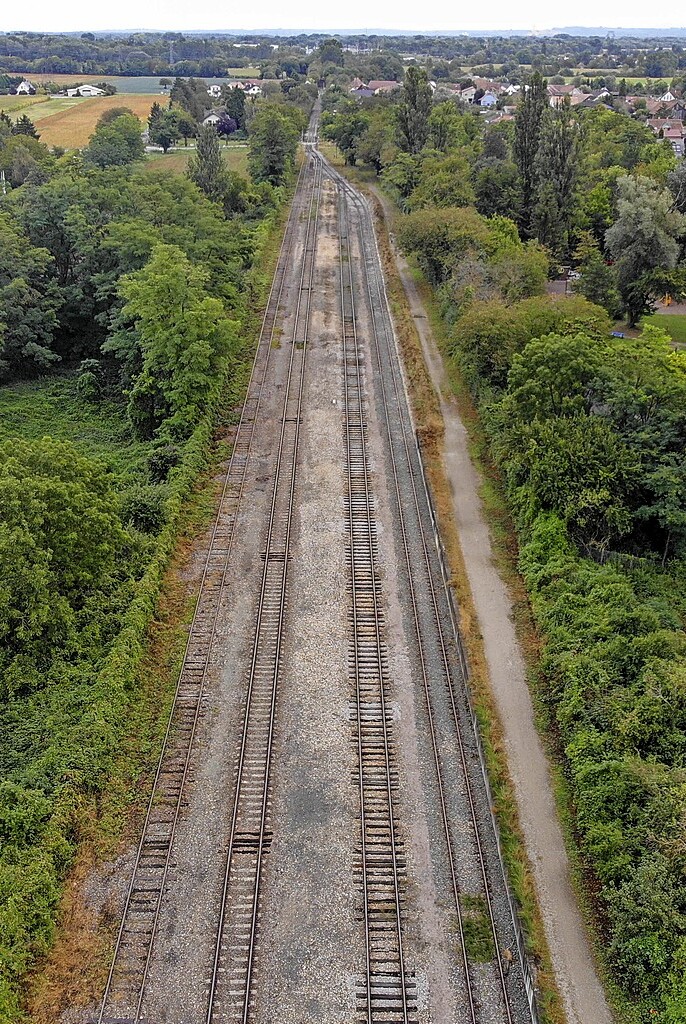Response to the Federal Ministry of Transport’s skepticism about EU funding for the railway line across the Rhine.
Members of the Bundestag from the region reaffirm the importance of a cross-border rail connection between Freiburg and Colmar. They continue to rely on the federal government supporting the project, even after the Federal Ministry of Transport had expressed skepticism about the prospects of funding from the European Union.
In response to a joint request from four Baden-Württemberg members of the Bundestag, the ministry advised against registering the railway project for the EU program Trans-European Transport Networks (TEN-T). The applicable conditions are too extensive for the regional project and would be so expensive that the associated EU grants would fizzle out.
The Freiburg Greens MP Chantal Kopf, who was involved in the request, now explains that the reconstruction of the railway connection across the Rhine, which was destroyed in the Second World War, not only has great political symbolism, but also practical benefits, for example for the many commuters. The commitment to European funding would also send an important signal to the French side, which has already registered the project for TEN-T. She will continue to campaign for “resilient financing commitments” and EU funding, which must also include missing regional sections in the transport network.
Emmendinger SPD MP Johannes Fechner explains that “it would have been a good signal if the German transport minister, like his French colleague, had registered this transport project, which is so important for our region, for the EU funding program Trans-European Transport Networks”. As soon as the results of the feasibility study are available, the application for the TEN program must be checked again. “This railway project is so important that we should also make use of EU funding,” Fechner demands. Now you have to wait for the results of the feasibility study. It is good that the ministry is clearly behind the Freiburg-Colmar railway line.
The rail connection is extremely important for the region and for cross-border traffic, explains Claudia Raffelhüschen, a member of the Freiburg FDP. It is also encouraging that the Federal Ministry is behind the project and the agreement for Franco-German projects in the Aachen Treaty. “That’s the decisive factor for me,” explains Raffelhüschen. One should now wait for the studies on demand and feasibility. And she thinks it is understandable that funding opportunities from EU programs are carefully examined, as the ministry advises. Because if projects could become more expensive due to additional expansion obligations from EU funding, nothing would be gained.
–

![The Irish Times: UN ban on Russia’s aggression against Ukraine banned as war [papildināts] The Irish Times: UN ban on Russia’s aggression against Ukraine banned as war [papildināts]](https://zinas.nra.lv/_mm/photos/2022-03/860px/555778_6b0185420f.jpg)
